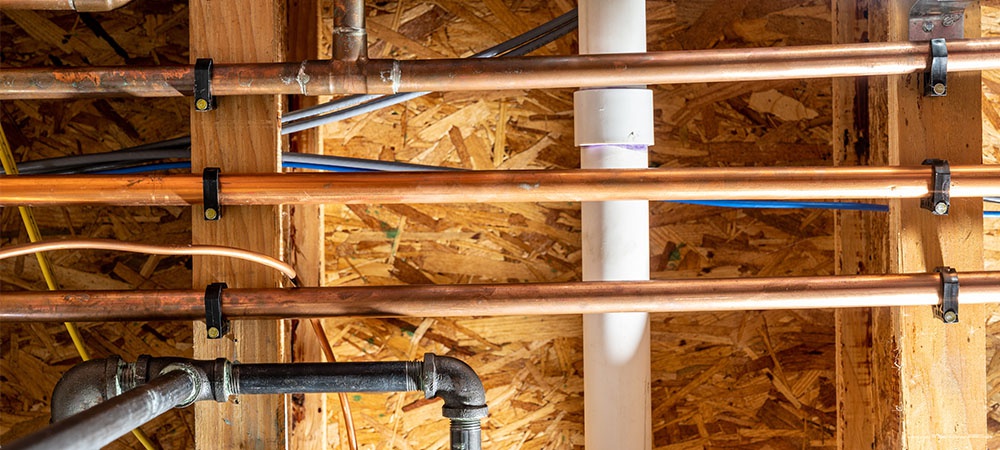Renovating your basement requires intensive consideration. Think about all the interwoven dynamics affecting the renovation project before starting it. Here are the essential things you must know before remodeling your basement.
1. Planning
Planning helps you foresee everything you need to complete your basement remodeling. Successful planning also enables you to anticipate all the possible pitfalls and avoid them. Lastly, planning helps you create a budget and stick to it.
2. The Building’s Holding Power
Consider your home’s holding structure before renovating your basement. Critically examine your basement because it’s a part of your home’s foundation. Any mess here could compromise your entire house’s stability. Check if it has cracked floors or walls, leaks, puddling water, sagging ceilings, and suspicious electrical or plumbing issues. Detecting these challenges enables you to seek a timely remedy before renovating your basement.
3. Future Space Usage
Consider your basement’s future space use before remodeling it. Think about how useful you would like it to be to you and your family ten years from now. If you have kids in your home and want to tailor it to meet their needs, what happens after they grow?
Factoring in these issues should make you flexible in determining your renovated basement’s purpose. It’s always safer to err, if you must, on the flexible than the narrow side. So, invest in features that will accommodate your family’s growing needs.

4. Water and Moisture
Moisture is common in many basements because they’re slightly below the ground level. Most basements sit on concrete slabs that lay directly on dirt, allowing wetness to seep up from the ground. The moisture can range from mild humidity to puddles. Pay attention to these issues and, if possible, do some pre-modelling if:
- Your basement feels sticky or clammy;
- You can smell mould or mildew;
- You’ve had water issues in the past;
- You’ve noticed any new water stains or wetness.
5. Building Permits
Building permits directly affect your basement’s renovation. Find out the necessary local permits and inspections before remodeling your basement. Call your city or local government clerk to explain permitting and inspection requirements and processes.
6. Building and Electrical Code Requirements
Some regions consider a basement remodeling project a wet area. If you will do any plumbing here, consider these questions:
- Can you utilize PVC or polyethylene, or must you use copper pipes?
- Must you use wooden studs and joists, or may you utilize steel?
These are just a few code requirements to know about when planning to renovate your basement.

7. The Renovation Contractor
Think about who will renovate your basement. Some building regulations require that only licensed contractors should renovate basements. Others allow you to undertake the project independently.
Confirming this requirement lets you know if you can do some jobs like wiring or plumbing and allow a professional contractor to do the rest. If you intend to install windows, you might leave the more difficult penetration for the window to an expert to enjoy a warranty if it leaks.
8. Lighting Type and Intensity
Lighting is an essential part of your basement remodeling work. After deciding its purpose, plan for its lighting. Its purpose determines the type and intensity of lighting you will fix in your basement. For example, if you want to use it for entertainment, its lighting can be more subdued.
But if you wish to use the basement as a working area, bright lighting would be necessary. You may also choose from hot, warm, and cool lighting.
9. Drainage Requirements
Drainage is another issue to think about before starting your basement renovation process. For example, if you include a small food preparation area or wet bar, determine if the basement has a place for tapping into your home’s drainage system. Decide on all these issues beforehand to avoid future drainage challenges.
10. Wiring
Wiring is necessary for every basement. You must seriously consider how you will wire it. Do you want to install inwall or surface-mounted wiring in your basement? Do you have enough wiring experience and knowledge to do it, or do you need professional help? Asking and answering these questions is critical before commencing your remodeling.

11. Direct Access to the Outside
Direct access to your basement’s outside is another issue to know about before starting your renovation. Maybe your old home was built when the building and safety codes were different. Over time, they changed, and now the new regulations require you to install a door that leads directly to the outside. Some local codes require this emergency door if you use the basement as a bedroom.
12. Flooring Alternatives
Flooring is a must-consider before proceeding with your basement renovation. Consider your basement’s current flooring and the one you want the renovated one to have. Factor in heating if the floor is susceptible to extreme cold during winter, and consider in-floor heat.
13. Ceiling Finishing
You must know about your renovated basement’s ceiling finishing before starting your remodel work. You have several options, like a drop ceiling, which is easy to move individually to access electrical hooks or plumbing lines. But irrespective of your chosen ceiling style, your basement’s highest ceiling level must be the same as the lowest hanging wire, duct, or pipe.
14. Heating
Knowing about your basement HVAC needs is necessary before renovating it. Most likely, your home’s HVAC system was designed to cater to your upper-level needs. You need an HVAC expert to verify that you require the correct equipment to serve your finished basement. Otherwise, you might overload and reduce your equipment’s lifespan
15. Radon Control
Lastly, know about radon control before remodeling your basement. Radon is an odourless radioactive gas that seeps into basements from neighbouring soils. Leaving it uncontrolled exposes you and your family to dangerous radiation, an equivalent of 200 chest x-rays annually.
Test for this gas using charcoal-base collectors or by hiring a licensed radon contractor. Alternatively, ask your local utility company if it offers radon testing. You can mitigate radon by sealing cracks and surfaces or installing ventilators.

Final Thoughts on Basement Renovation
Careful planning and consideration are necessary before starting your basement renovation. We discussed the fifteen things to know before starting this exciting remodelling work. We hope this valuable information helps you kickstart your project on a safe, informed footing.
Considering renovating or finishing your basement in or around Ontario? Don’t hesitate to contact our team today for a free estimate and consultation.




